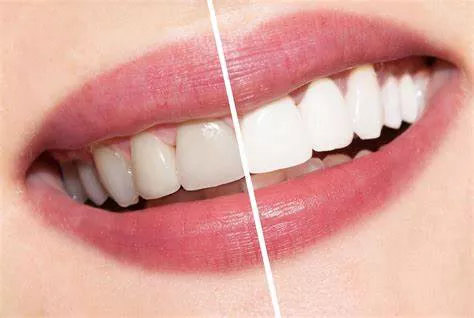Teeth whitening is a popular cosmetic dental procedure aimed at enhancing the appearance of teeth by removing stains and discoloration. This article delves into what teeth whitening entails, including its benefits, different methods, safety considerations, and more.
What Is Teeth Whitening?
Teeth whitening, also known as dental bleaching, is a process designed to lighten the color of teeth and improve their overall appearance. It is a non-invasive procedure that can effectively remove stains and discoloration caused by various factors such as:
Extrinsic Stains: These are stains on the outer layer of the tooth (enamel) caused by factors like food, beverages (such as coffee, tea, and red wine), tobacco use, and poor oral hygiene.
Intrinsic Stains: These are stains that occur within the tooth structure itself, often due to factors like aging, certain medications (e.g., tetracycline), or excessive fluoride exposure during tooth development.
The Teeth Whitening Process
Teeth whitening procedures typically involve the use of bleaching agents to lighten the color of teeth. While there are various methods available, the two primary approaches are:
In-Office Teeth Whitening:This professional treatment is performed by a dentist in a clinical setting. It involves the application of a high-concentration bleaching agent, usually containing hydrogen peroxide or carbamide peroxide, to the teeth. Special lights or lasers may be used to enhance the whitening process. In-office whitening is known for delivering quick and dramatic results, often within a single appointment.
At-Home Teeth Whitening: This method involves using whitening products provided by a dentist for home use. These products include custom-made whitening trays that fit over the teeth and are filled with a lower-concentration bleaching gel. Patients typically wear these trays for a specified period each day, following the dentist’s instructions. At-home whitening may take longer to achieve desired results compared to in-office treatments but offers convenience and flexibility.
Benefits of Teeth Whitening
Teeth whitening can offer several benefits, including:
Enhanced Appearance: Whiter teeth can significantly improve your smile’s aesthetics, boosting self-confidence and making a positive impression.
Youthful Appearance: Whiter teeth are often associated with youthfulness and vitality, helping you look more vibrant and attractive.
Improved Oral Hygiene: Undergoing teeth whitening may motivate individuals to maintain better oral hygiene habits, such as regular brushing, flossing, and dental check-ups.
Positive Psychological Effects: A brighter smile can contribute to improved self-esteem and a more positive outlook on life.
Safety Considerations
While teeth whitening is generally safe when performed by dental professionals, there are important considerations to keep in mind:
Consultation: Before undergoing teeth whitening, it’s essential to consult with a dentist to assess your oral health, identify any underlying issues that may affect whitening results, and determine the most suitable treatment approach.
Professional Supervision: In-office whitening ensures that the procedure is conducted under professional supervision, minimizing risks and maximizing effectiveness.
Avoid Overuse: Overusing whitening products or using non-professional, unregulated products can lead to tooth sensitivity, gum irritation, or uneven whitening results. Follow your dentist’s recommendations for safe and effective whitening.
Pregnancy and Nursing: Pregnant or nursing individuals should consult with their healthcare provider before undergoing teeth whitening, as certain bleaching agents may not be recommended during these periods.
Maintaining Whitened Teeth
To prolong the effects of teeth whitening and maintain a bright smile, consider the following tips:
Good Oral Hygiene: Brush your teeth at least twice a day, floss daily, and use a fluoride toothpaste recommended by your dentist.
Avoid Staining Foods and Beverages: Minimize consumption of foods and drinks that can stain teeth, such as coffee, tea, red wine, and berries. If consumed, rinse your mouth with water afterward.
Quit Smoking: Tobacco use can lead to tooth discoloration and other oral health problems. Quitting smoking can not only benefit your overall health but also preserve your whitened smile.
Regular Dental Visits: Schedule regular dental check-ups and cleanings to monitor your oral health, address any concerns promptly, and receive professional advice on maintaining white teeth.
Conclusion
Teeth whitening is a safe and effective cosmetic dental procedure that can transform your smile by removing stains and enhancing tooth color. Whether done in-office or at home under professional guidance, whitening treatments offer numerous benefits, including improved aesthetics, confidence, and oral hygiene. By understanding the process, considering safety precautions, and maintaining good oral habits, you can enjoy a brighter, more radiant smile for years to come.

